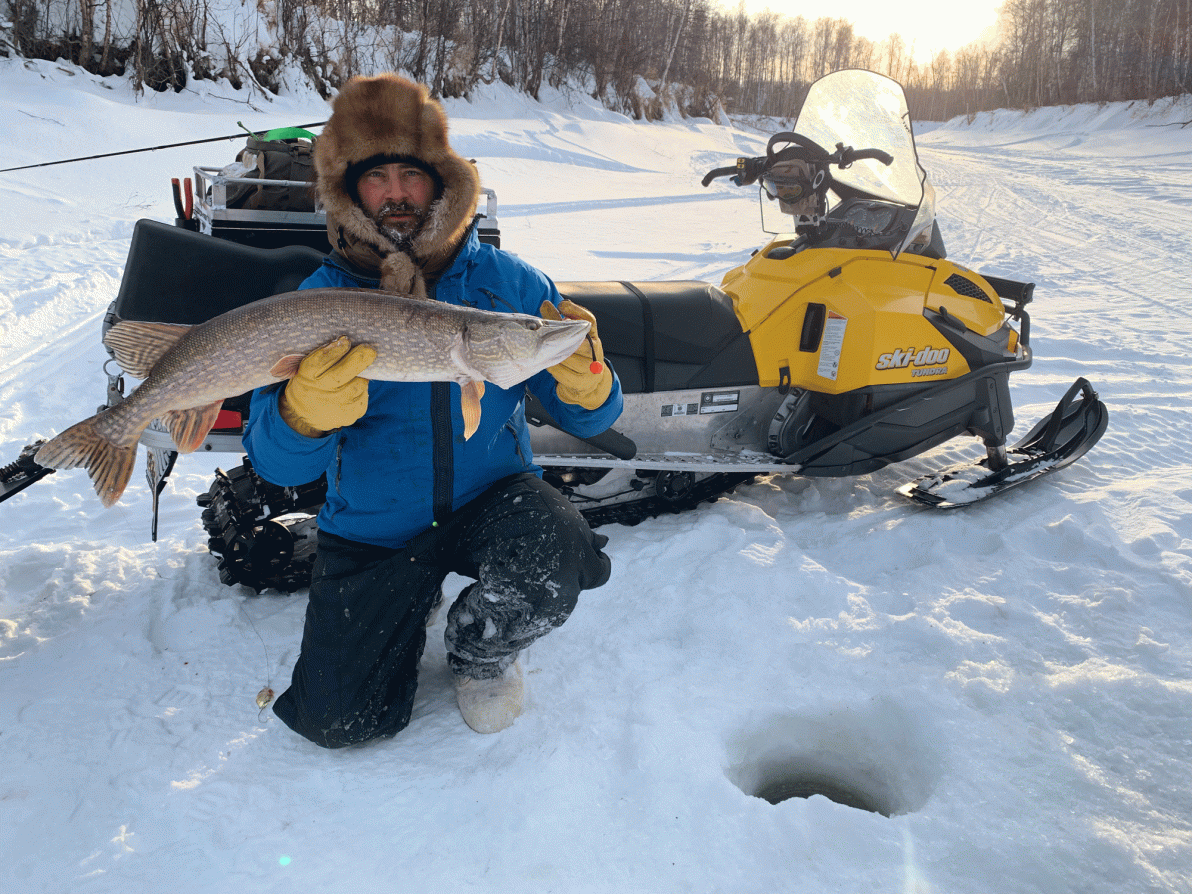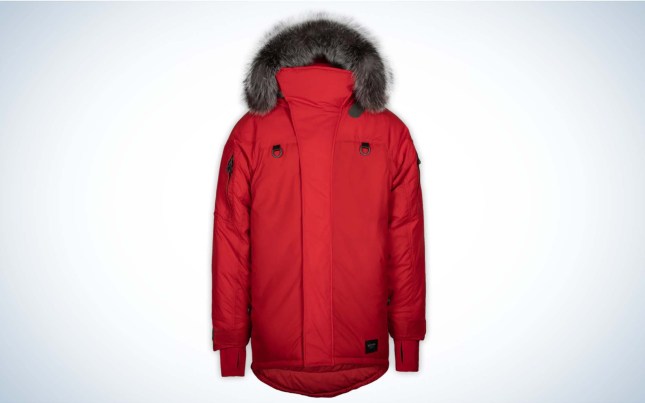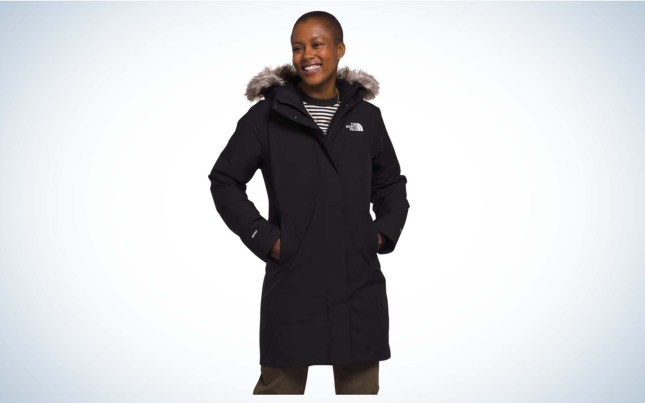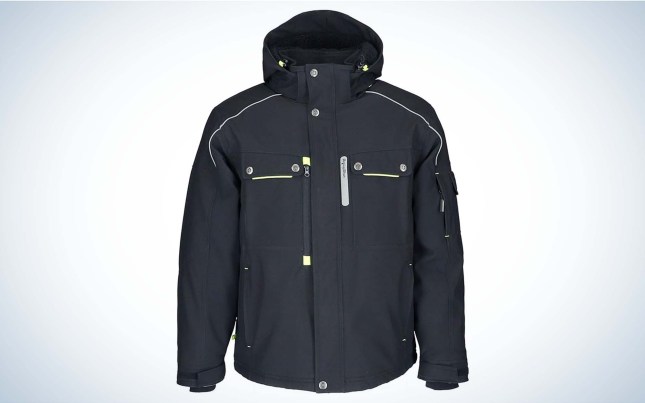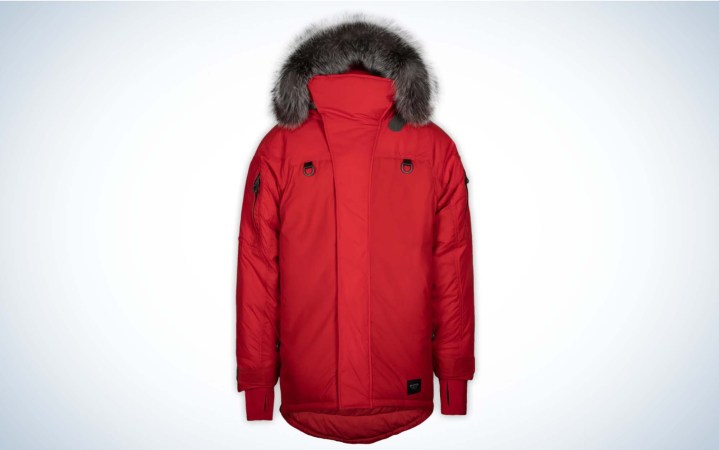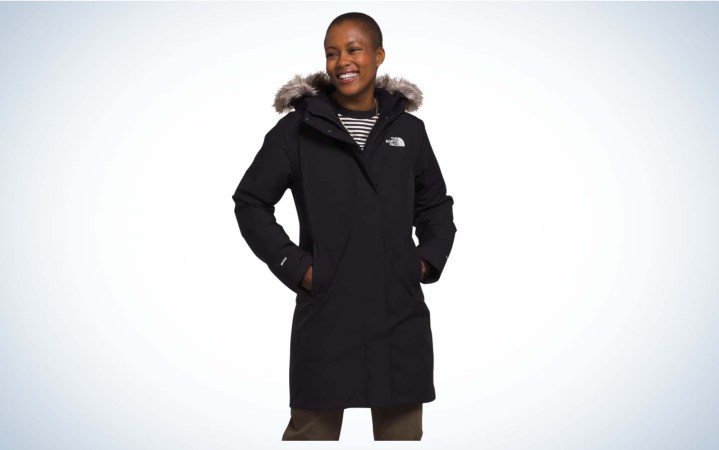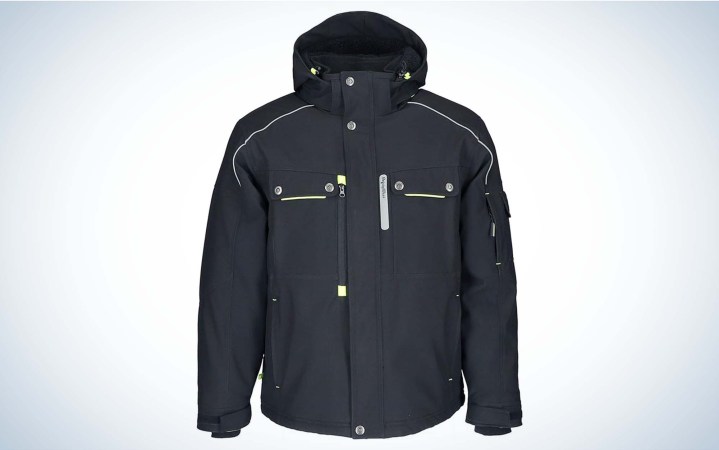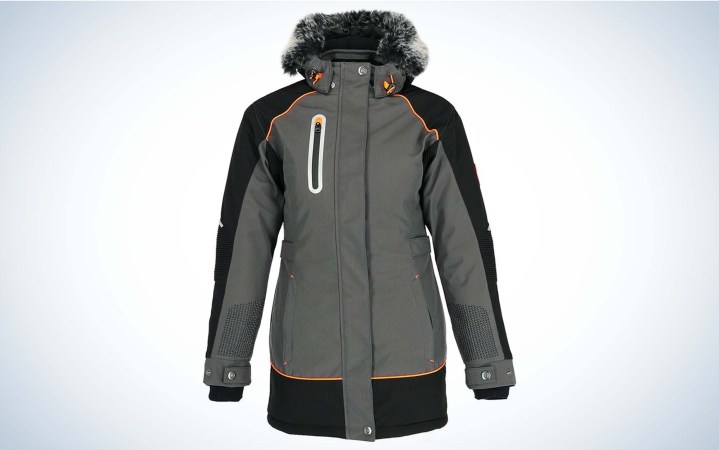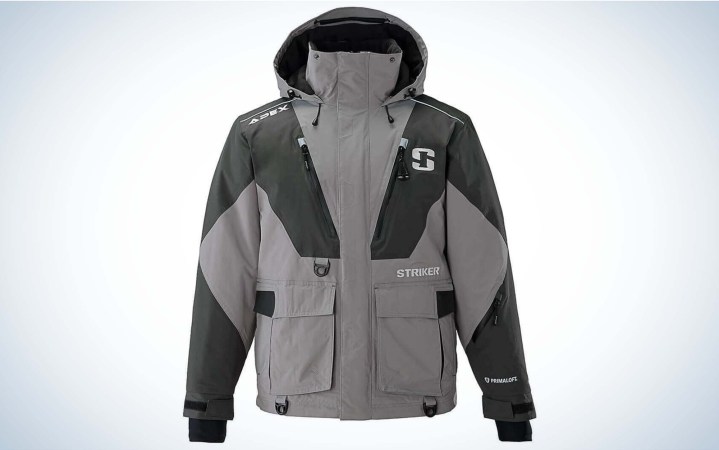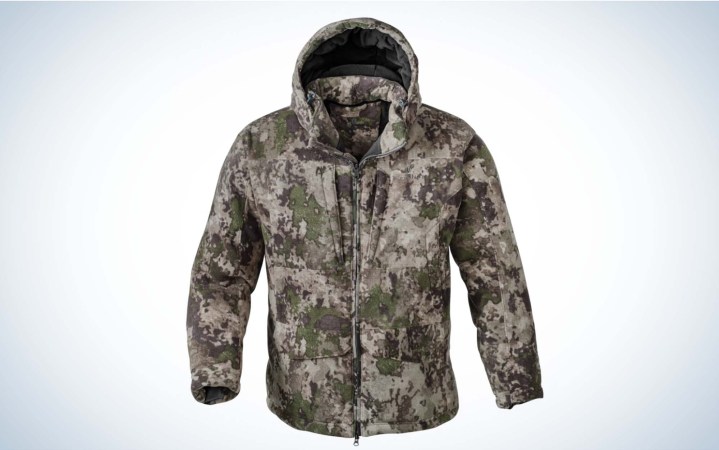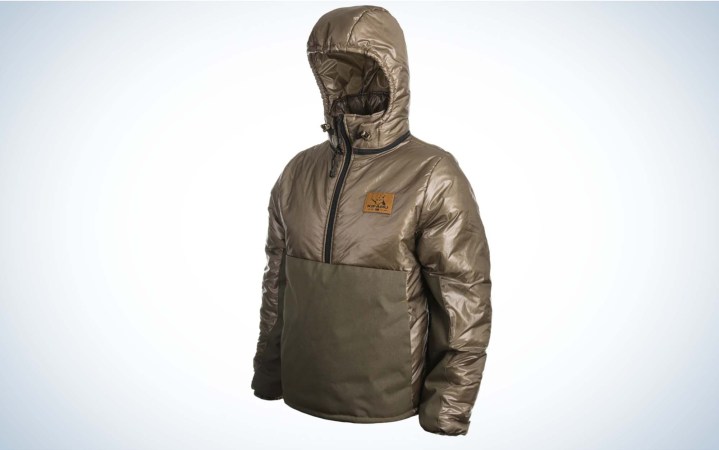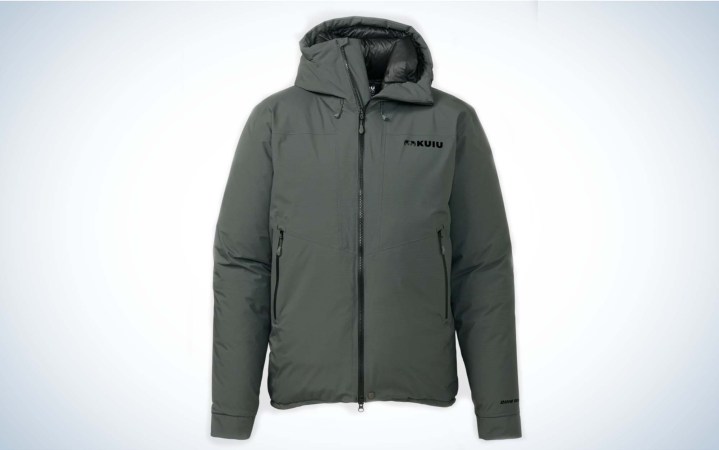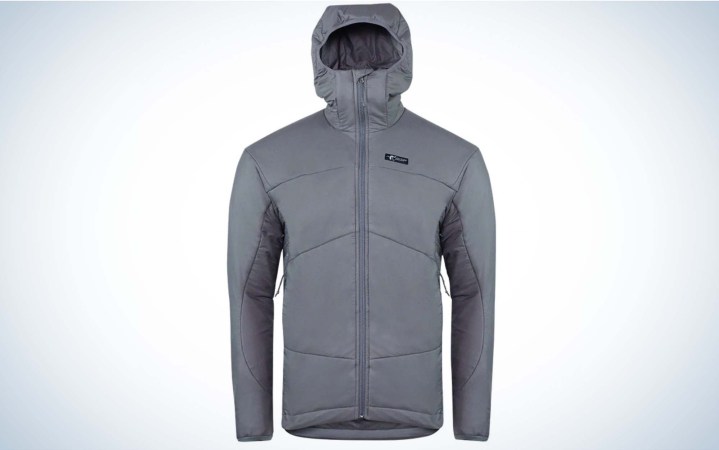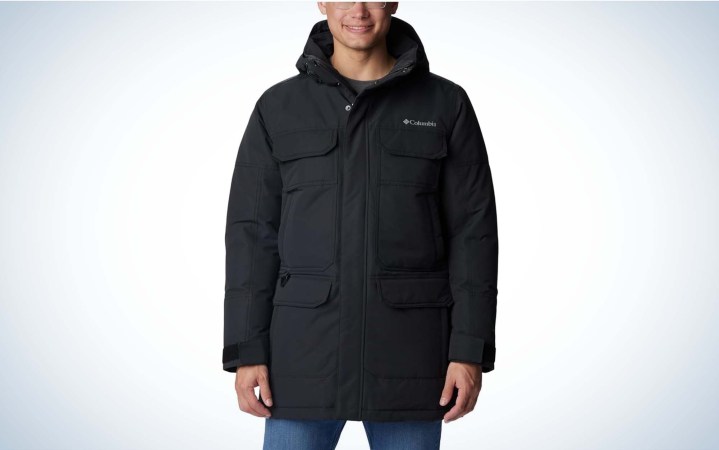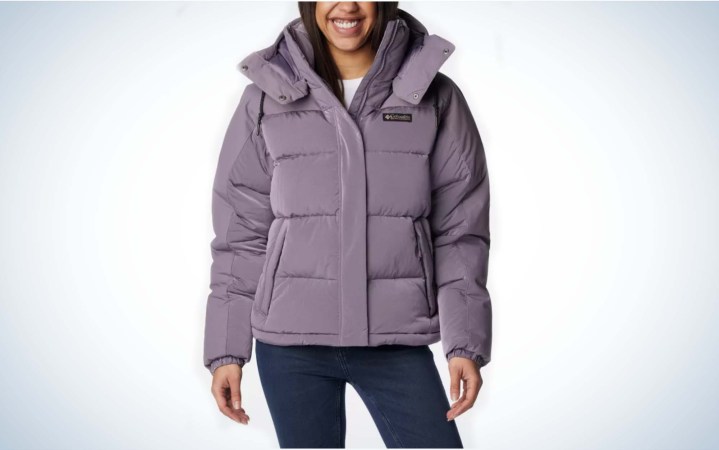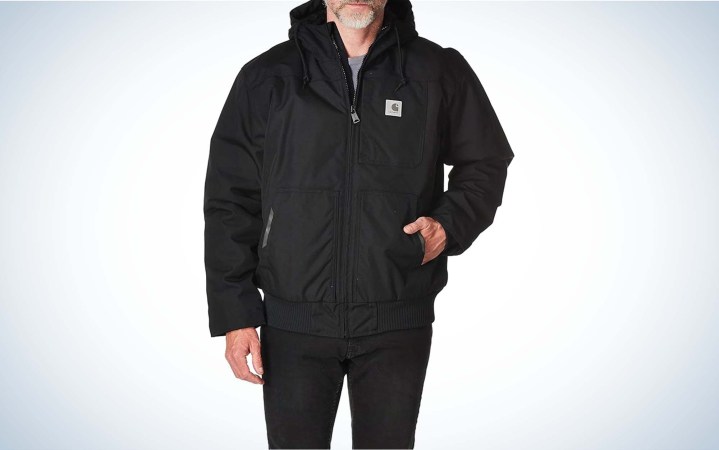We may earn revenue from the products available on this page and participate in affiliate programs. Learn More ›
With winter settling in where I live in Fairbanks, Alaska, there’s no better time to talk about jackets for extreme cold, and how to pick a good one. A jacket or parka is a critical piece of gear for thriving in sub-zero temperatures, but selecting the best coat for you requires a few things: To pick the right coat, you’ve got to consider your activity level and what you’ll be using it for. The cost and durability of your jacket are going to affect your choice too.
Extreme cold isn’t a frost that kills your grandma’s tomatoes or sends Texas into a tailspin. Keeping yourself warm, dry, and functional when the air has a bite that sucks the breath from your lungs depends greatly on your activity level and layering. One coat might be great for working in extreme cold, another better suited for hiking or snowshoeing. Each application has its own demands and challenges. There’s not a single best option for everyone, but if you’re looking for the best winter jackets for extreme cold, this lineup is a good start.
- Best Overall Men’s: Beyond Clothing Allta Polar L8 Parka
- Best Overall Women’s: The North Face Women’s Arctic Parka
- Best Value Men’s: RefrigiWear Extreme Hooded Jacket
- Best Value Women’s: RefrigiWear Polar Force Parka
- Best for Ice Fishing: Striker Apex Jacket
- Best for the Tree Stand: Cabela’s Instinct Standhunter Parka
- Best Synthetic Packable: Kifaru Lost Park Parka
- Best Down Packable: KUIU Superdown Burner Parka
- Best for Layering: Stone Glacier Cirque and M7 Jackets
- Most Durable Down: Columbia Landroamer Down Parka
- Active Puffy for Women: Columbia Snowqualmie Jacket
- Best for Work and Chores for Men: Carhartt Yukon Extremes Loose Fit Insulated Active Jacket
- Best for Work and Chores for Women: Carhartt Montana Relaxed Fit Jacket
How I Tested Winter Jackets for Extreme Cold
Testing winter jackets for extreme cold requires, first and foremost, extreme cold. I gathered all these jackets at my home in Fairbanks, Alaska, and waited. Though it’s been a mild winter, we finally hit some solid sub-zero temperatures in December. “Extreme cold” is a relative term. In some places, that means below freezing. Anchorage folks consider zero degrees cold. Here in Fairbanks, 40 below zero is the gold standard, but anything 20 below zero and colder is damn chilly.
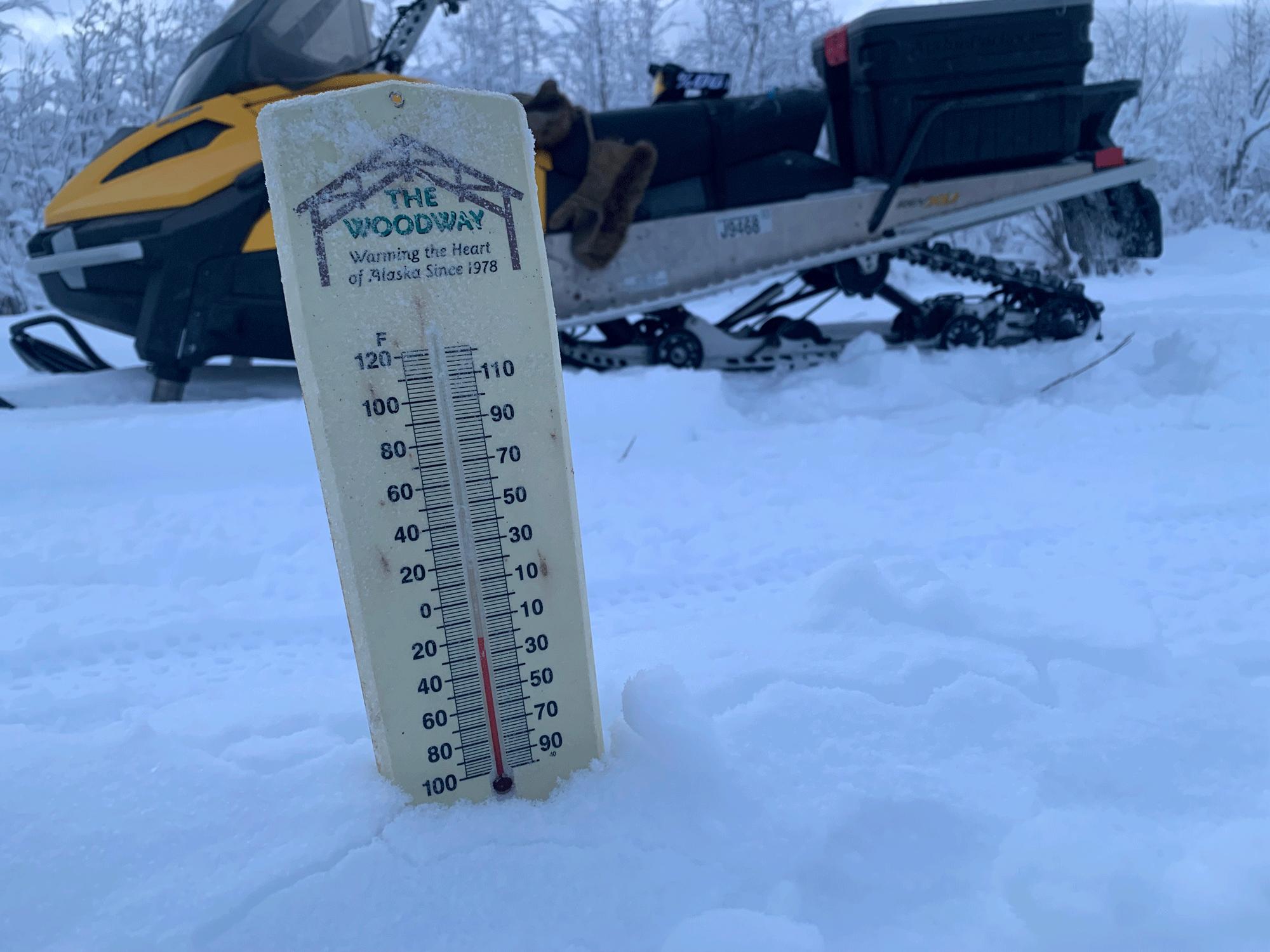
Tyler Freel
We haven’t hit 40 below yet, but I’ve spent quite a bit of subzero time with each jacket (my wife helped me with the women’s jackets) tackling day-to-day chores, plowing snow, hauling wood, ice fishing, hiking, and riding snowmachines—snowmobiles for you lower 48ers. I was able to ride with each jacket in minus 20- to minus 30-degree temperatures, at speeds of 20 to 30 mph. That produces a wind chill of around 50 to 60 below zero—if you believe in such a thing as wind chill. Below the coats, I wore only a light Primaloft insulation layer, lighter than I’d normally wear in such conditions, to feel the difference in warmth of the coats. I’ve rated each jacket according to its intended purpose, and how well it suits that application.
Best Jackets for Extreme Cold: Reviews & Recommendations
Best Overall Men’s: Beyond Clothing Allta Polar L8 Parka
Key Features
- Shell: Micro-ripstop nylon
- Insulation: 8-ounce PrimaLoft Gold Eco
- DWR water-repellent coating
- Removable Finnish fox fur ruff
- Snap-lock full-coverage collar
- Thumb hole inner cuffs
- Low rear, higher front cut
- Four external cargo pockets, two large elastic hammock pockets inside coat
- Price: $595
Pros
- Lightweight and warm
- Shell material maintains mobility in extreme cold
- Excellent wind blockage
- Quick-drying
- Real fur ruff
Cons
- Shell not ideal for rough use
Across the wide variety of jackets that I tested, the Allta Polar L8 was far and away the best jacket for brutally cold weather. It’s similar in some ways to the old canvas fur-ruffed parka that my dad used when working in Prudhoe Bay in the late 1970s, and the old, discontinued Cabela’s parkas, except that this is a lighter, warmer, and more responsibly sourced coat.
It features a lightweight nylon ripstop shell that’s DWR treated and water resistant. When the mercury plummets to minus 20 degrees, many jacket shells become stiff, loud, and inhibit your movement. That’s not the case here. The coat feels light, and movement is easy.
The PrimaLoft Gold insulation packs down well, but offers exceptional warmth, while drying faster than down. One of the fastest ways to freeze in extreme cold is to sweat out and soak your parka. This PrimaLoft dries quickly, even with only your body heat. This coat also stops the wind exceptionally well: When standing upright riding at temperatures around minus 25 degrees, I never felt any cold spots. Extreme cold demands that you use a lot of gear, and I really appreciate the hammock-style elastic pockets inside the coat flaps. They’re perfect for extra gloves, hats, or face masks.
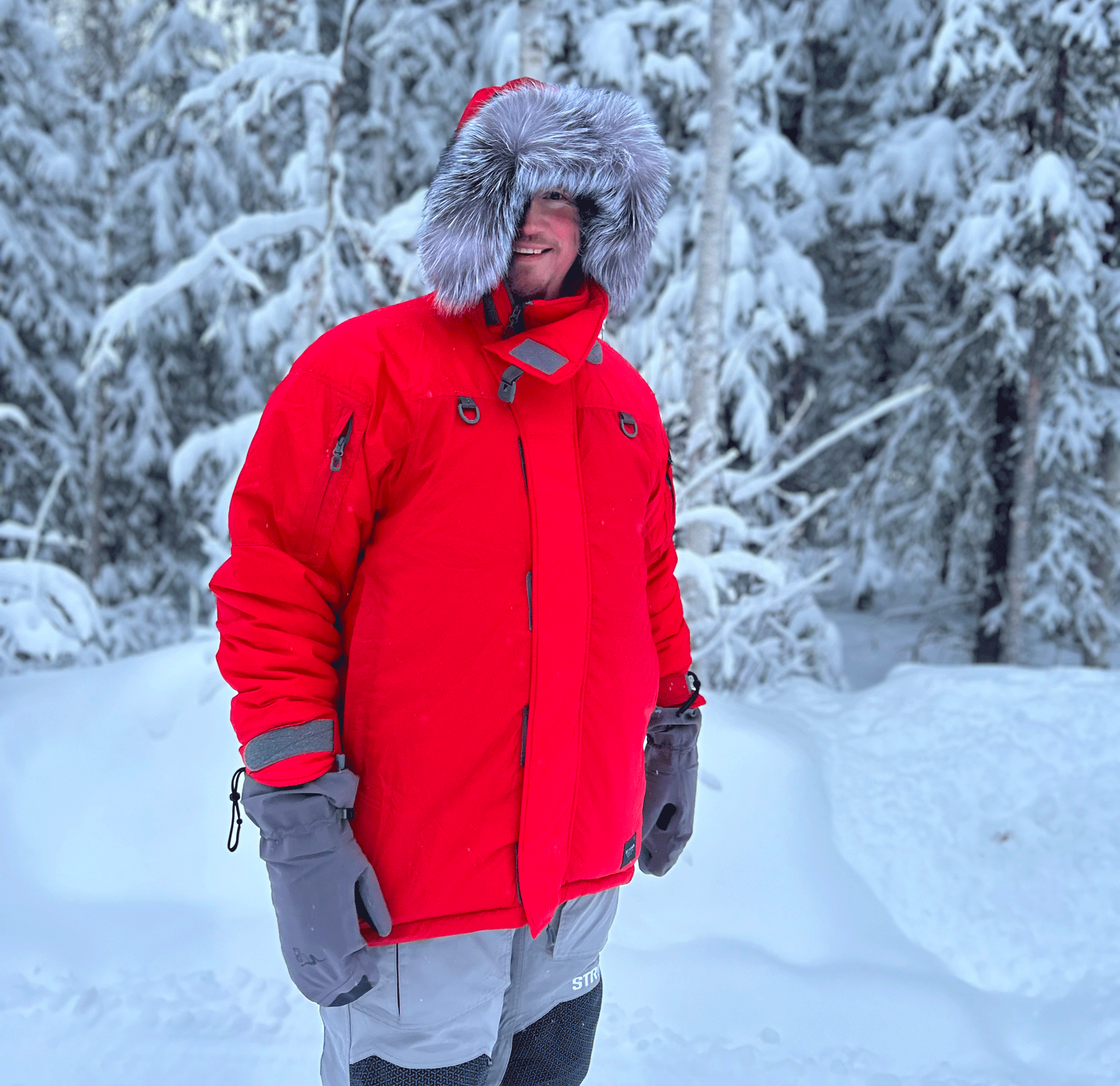
Tyler Freel
Many cold-weather coats are weak in the hood and collar, and sometimes the collars are entirely too tight to zip or fasten completely. The Allta Polar L8 has an excellent insulated hood and collar. The collar has plenty of material to zip up over a mask or neck gaiter, and it has an enlarged weather flap that has both hook-and-loop and a snap-in fitting to secure it over your face. The hood features a zipper-removable Finnish fox fur ruff that, unlike most fashion-inspired ruffs, serves its purpose well. The fur ruff’s purpose when fully extended with the hood up is to maintain a warm pocket of air on your face. This is centuries-old technology, and it works. With the hood secured and the ruff extended forward, I could ride without goggles at minus 25 degrees comfortably. Without a ruff or goggles, the biting cold air feels like someone’s driving a nail between your eyes. I appreciate Beyond’s use of these Finnish-farmed silver fox fur ruffs; my only critique being that fox is a very fine-haired fur, and not very durable. I’d rather see a coyote ruff used, and I’ll likely see about replacing mine with a nice wolf or wolverine ruff.
Best Overall Women’s: The North Face Women’s Arctic Parka
Key Features
- Shell: Waterproof DryVent shell
- Insulation: Recycled down
- DWR water-repellent coating
- Insulated hood with removable fake-fur ruff
- Snap-lock storm flap
- Neoprene thumb-hole sleeve cuffs
- Hand warming pockets
- Long cut with bottom-opening zipper
- Weight: 2 pounds, 10 ounces (Women’s S)
- Price: $350
Pros
- Very warm with good mobility
- Warm hood
- Durable and flexible shell
- Great moisture repellency
Cons
- Real fur ruff would be better
After testing, my wife’s clear favorite was The North Face Arctic Parka. It’s a simple long-cut design that uses a waterproof shell and recycled waterfowl down for insulation. The DryVent shell is flexible and doesn’t stiffen up in the cold too bad, but it’s durable and abrasion resistant, and protects the down insulation from moisture. The insulation is sewn into baffles to prevent sagging, but the monolithic outer shell helps prevent heat loss between baffles. This coat has nice neoprene cuffs with a thumb hole that can be used or bypassed. This helps keep drafts and snow from penetrating the coat.
This parka features a nice insulated hood with a fake fur ruff. The construction of the hood is excellent, and the ruff can be folded back and secured with three small snaps. When it’s needed, the snaps can be undone and the ruff extended forward to protect the user’s face by creating a warm air pocket. This hood and ruff work well, but as a trapper and former contracted fur handler, fake fur is a poor imitation of the real thing. Sustainably-sourced real fur is a renewable resource, and the fake stuff just can’t compare.
My wife liked the long cut of this jacket because it kept her warmer than shorter cuts, especially while wearing snow pants rather than bibs. When fully zipped, the jacket does impede leg movement a bit but the zipper can be opened from the bottom to allow more freedom of movement too. This is a coat that allows for active use in extremely cold weather, but it’s not one that you’ll want to hike in. It stops the wind wonderfully and is an excellent all-around extreme cold weather coat for a variety of tasks and applications.
Best Value Men’s: RefrigiWear Extreme Hooded Jacket
Key Features
- Shell: Soft polyester
- Insulation: AirBlaze polyester insulation
- Warm Plus graphene inner lining
- Removable fleece-lined hood
- Storm flap on collar
- Zippered armpit vents
- Deep inner sleeve cuffs
- Glove clip
- Bottom and internal draw cords
- Weight: 4 pounds, 3 ounces (Men’s XL)
- Price: $210
Pros
- Very warm
- Soft shell is durable and doesn’t get stiff
- Great for a variety of cold-weather tasks
- Excellent value
Cons
- Not ideal for high physical activity
RefrigiWear has been a staple brand for a long time here in Alaska. Their Iron Tough coveralls have been a go-to for trappers in interior Alaska for decades, and the more modernized Extreme Hooded Jacket offers the same endearing properties. It’s a heavy-duty jacket that’s geared toward working in subzero temperatures but is also great for riding, ice fishing, or any other non-strenuous activity. At 4 pounds 8 ounces, it’s a heavy coat, but has a soft polyester shell that doesn’t get stiff in the cold, which is common with a number of durable-shell jackets. The slick inner lining goes on smoothly and the sleeves don’t stick to middle layers when taking it off—a big plus.
The sleeves have a deep inside cuff that fits tightly around the wrist. It keeps snow and drafts out of the sleeve, but extends far enough into the sleeve to fit long gloves or mitts under the outer cuffs. The zipper-detachable hood is lined with a synthetic wooly fleece. The collar is also lined with a finer fleece, which is especially comfortable on the face when you’re dripping snot-cicles. The storm flap and pocket flaps are secured with large, heavy-duty snaps as well as some hook-and-loop on the zipper flap
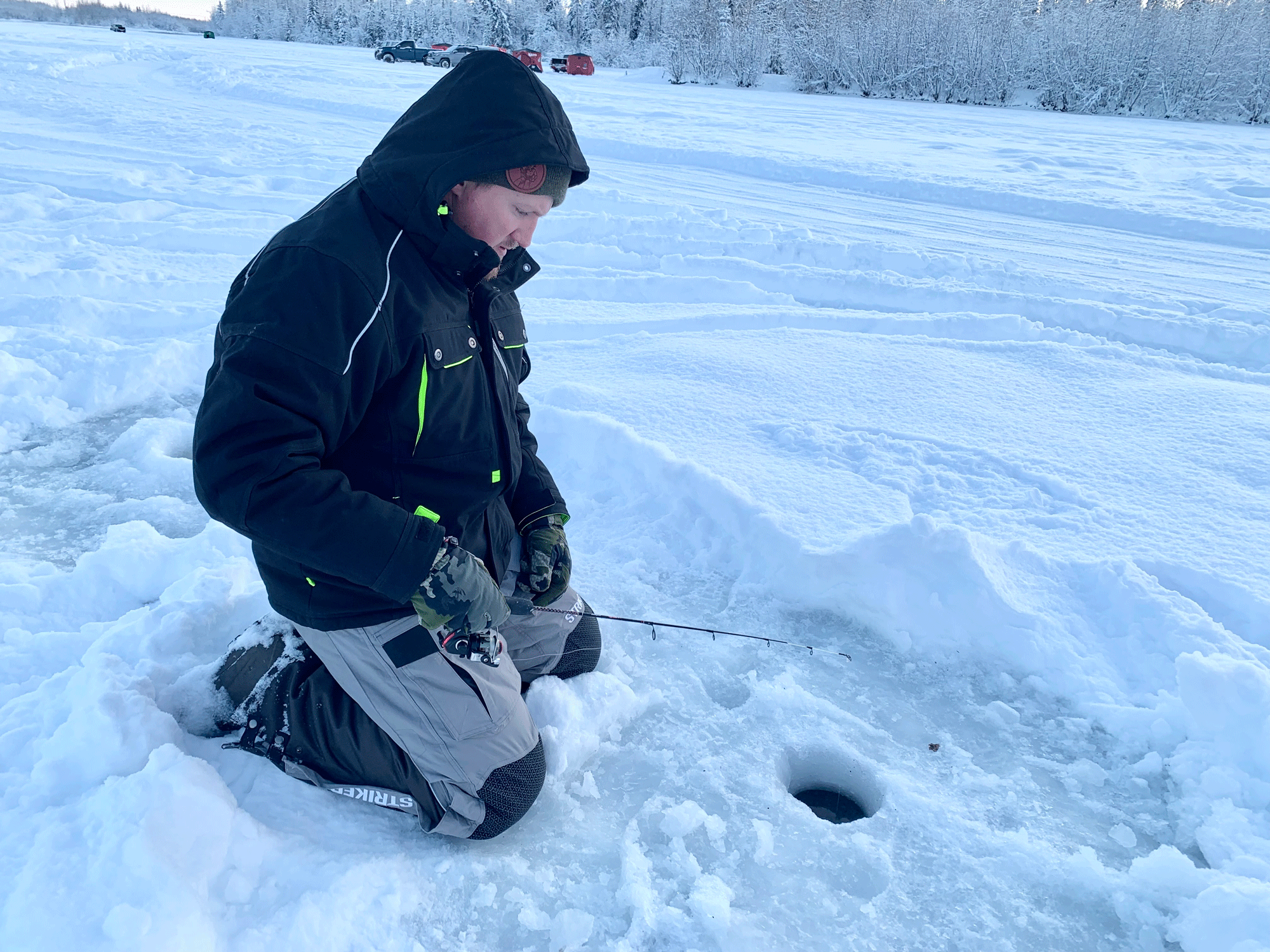
Tyler Freel
This coat has a comfort rating of 60 below zero, which is a bit subjective. There’s not very many ways to stay comfortable at 60 below. From experience, I can tell you that just the moisture from your eyes will cause your eyelashes to freeze together within a few minutes at that temperature. This coat isn’t quite as specialized for some things as a fur-ruff parka, but all around, it’s one of the very best winter jackets for extreme cold weather that I tested. Starting out cold, the coat warmed quickly and stayed warm when riding, cutting the wind well. I’ve worked on a lot of construction jobs outside in the winter, where you need a durable and warm coat, and this one is as good as any I have used. It’s well suited for just about any cold-weather activity that doesn’t involve a lot of strenuous movement—for that it would be too hot. At just over 200 bucks, it’s the best value I found.
Best Value Women’s: RefrigiWear Polar Force Parka
Key Features
- Shell: Soft polyester
- Insulation: Polyester
- Silver/mesh inner lining
- Removable hood with removable fake fur ruff
- Snap-lock storm flap
- Armpit cinch straps
- Deep inner sleeve cuffs
- Exterior hand warming pockets
- Bottom and internal draw cords
- Weight: 4 pounds (Women’s M)
- Price: $246
Pros
- Soft, extremely durable shell
- Superbly warm and wind resistant
- Good length
- Comfortable hood and nice sleeve cuffs
Cons
- Heavy and bulky
RefrigiWear came away with a best value win for both men’s and women’s coats in this test. Although they weren’t our favorite coats of the test, they are unmatched in utility and warmth for the money. My wife’s only negative feedback for this coat was its weight and bulk. It’s too warm for a lot of active work, but she thought it was the best coat for staying warm while riding snowmachines or being out in the wind. This coat features a soft polyester shell that’s thick, durable, and doesn’t get stiff or crunchy in subzero temperatures. It uses synthetic, polyester insulation that’s heavier than down, but a better insulator if it gets wet from sweat. The coat also has upper and lower interior draw cords for keeping drafts out. The interior lining of the coat is a reflective silver fabric with black mesh laid over it. It’s easy to put on without the sleeves of your inner layers being pulled up.
The Polar Force Parka has a zipper-attached removable hood. On that is a snap-attached, fake fur ruff. The ruff can be secured back with a secondary set of snaps, or folded forward when the hood is in use. Like The North Face parka, I’d rather see a real fox or coyote fur ruff on this jacket, but it’s functional as-is. This jacket is rated to 40 below zero, and that’s likely a pretty accurate rating if you’re layering smartly and not just sitting still. You will have a hard time finding a better, warmer, or more durable cold weather jacket for the money.
Best for Ice Fishing: Striker Apex Jacket
Key Features
- Shell: 320D Nylon Tussor with a waterproof/breathable lining
- Insulation: 80 gram Primaloft Gold
- DWR coating
- Fleece-lined hood
- Oversized fleece-lined collar
- Magnetic storm flap closure
- Zippered vents
- Inner sleeve cuffs
- Fleece-lined hand warmer pockets
- Ceramic line cutters on chest pocket zipper
- Provides some flotation
- Weight: 3 pounds, 2 ounces (Men’s XL)
- Price: $449
Pros
- Durable shell cuts wind and repels water and snow
- Hood and collar are great for windy conditions
- Pockets and interior hammock gear pouches are convenient and easy to access with wet, cold hands
- Flotation is added security for accidental ice breakthrough
Cons
- Jacket isn’t very low in the back, which works best with bibs, not pants
If there’s one outdoor pursuit that folk associate with freezing your ass off, it’s ice fishing. Nothing says cold like sitting on a bucket on a frozen lake with your back into a stiff sub-arctic breeze. Lots of jackets will work well for ice fishing, but the Apex jacket from Striker is quite literally tailored for it. It’s a winter coat that uses Primaloft Gold synthetic insulation, as well as Sureflote for flotation assistance—something that could be very valuable to anyone traversing potentially sketchy ice. Its exterior is durable 320D nylon with a breathable waterproof liner. Ice fishing often involves getting splashed with snow, slush, and liquid water in freezing temperatures, and this jacket is one of the best at shedding that moisture.
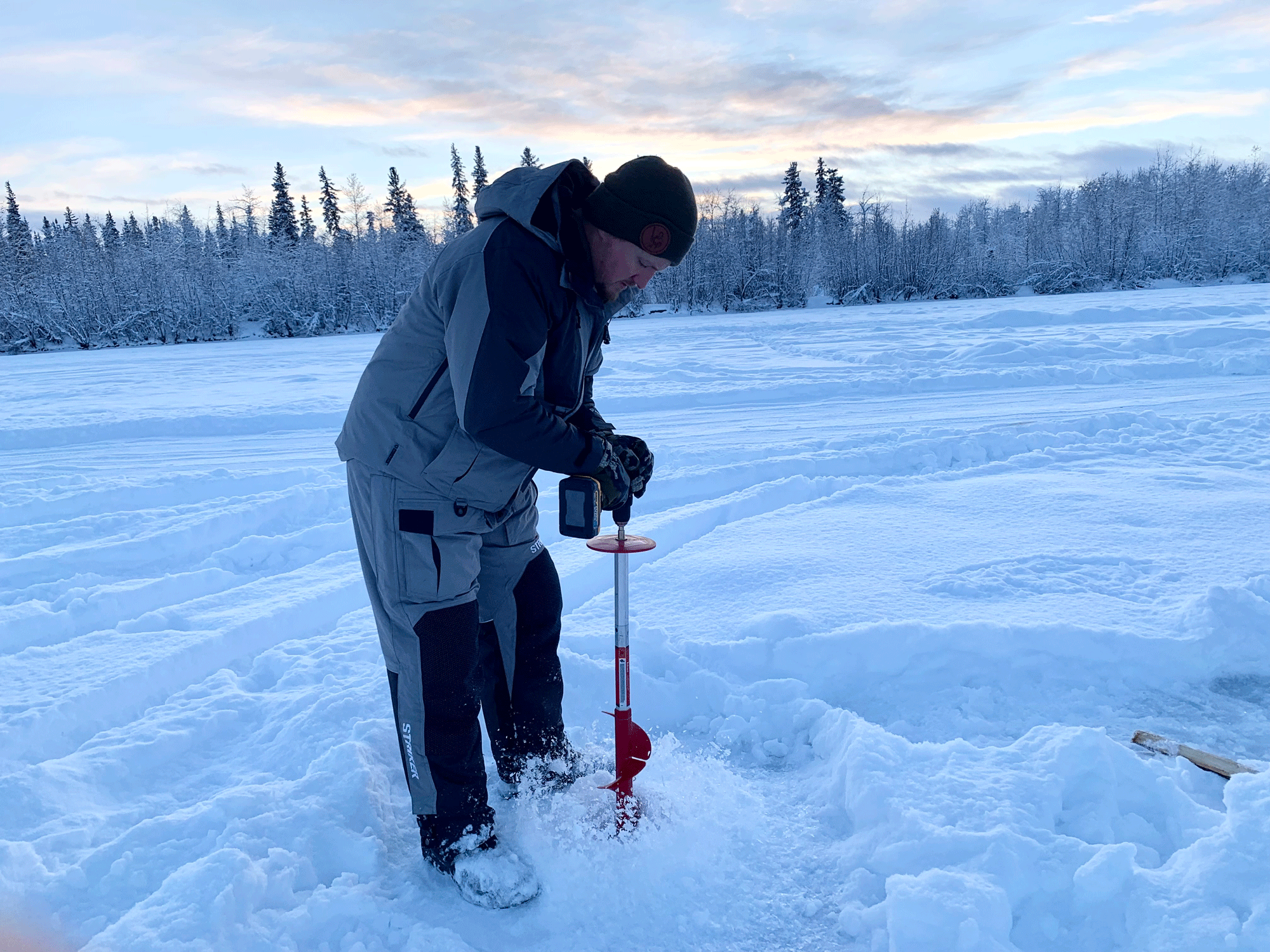
Tyler Freel
The Apex jacket has well-placed pockets, including fleece-lined hand warming pockets—something that’s needed for any ice fishing venture. Cargo pockets and the storm flap are secured with magnetic closures and are easy to operate with wet, numb hands. They flaps also include a small piece of rubber fabric for clipping hemostats onto. Inside the jacket, both sides have mesh cargo pockets for extra gloves, hats, or gear. The back, chest, and shoulders have fleece “heat map” panels on the interior, but the sleeves have a slick polyester lining that won’t bind on your inner layers when putting the jacket on or taking it off.
The jacket did great in testing when worn with bibs, but it’s a little short to use with snow pants. I felt some mild cold spots in the shoulders and chest when riding, but I stayed comfortable. No one would want to be sitting outside a shelter ice fishing at 20 or 25 below zero, but the jacket is great for travel and augering holes. At 10 above zero, it’s perfectly suitable for fishing outside all day. This jacket’s water repellency makes it a good candidate for a riding jacket too, as it won’t get caked or soaked with snow or ice.
Read Next: Best Ice Fishing Suits
Best for the Tree Stand: Cabela’s Instinct Standhunter Parka
Key Features
- Shell: Polyester microfleece with DryPlus liner
- Insulation: 3M Thinsulate
- Microfleece inner lining
- Removable hood
- Safety harness strap hole under collar
- Zippered chest pockets (upper and lower)
- Hammock-style mesh internal pockets
- Zipper-closed cuffs
- Weight: 4 pounds, 11 ounces (Men’s XL)
- Price: $240
Pros
- Ultra quiet
- Water/rain resistant
- Works well with a treestand harness
- Blocks wind well
Cons
- Very bulky
- Excessive snow and moisture will stick to outer fleece layer
One of the most difficult extreme cold scenarios to deal with is hunting in a blind or tree stand. You must remain still and quiet, but that means your body will be producing less heat. A jacket won’t do you any good if it keeps you warm but makes noise when you have to prepare to shoot. Though the Standhunter Parka is an entirely different beast than the old coyote-fur-ruff Cabela’s parkas, it’s perfectly suited for sitting still and being quiet. It’s got a microfleece outer lining that’s backed with a DryPlus breathable rain-repellent liner. Up top, it sports a heavy removable hood, and the inside is lined with microfleece too. This coat has four zippered front pockets, two interior zippered pockets, and two large mesh hammock-style pockets. Specifically for the treestand hunter, it has a hole for the safety harness strap just below the back of the collar to allow use of the hood.
The Standhunter Parka is a heavy, bulky coat. It’s not packable. It is warm, however, and the DryPlus lining certainly helps cut the wind and moisture. In the wind at 20 below, I could feel some cold in my shoulders and chest, but it wasn’t bad. I did notice some snow and ice clinging when driving down tight, brushy trails. The fleece fabric will absorb some moisture from rain or snow, but if you’re able to dry it out every night, it’s perfect for long sits in cold weather. The cut isn’t very long, so insulated bibs would be a great choice to keep Jack Frost from scratching at the top of your pants when you sit down. This doesn’t rank high for me as an all-around jacket, but for its intended purpose, it’s a stellar, affordable option.
Best Synthetic Packable: Kifaru Lost Park Parka
Key Features
- Shell: Rhinoskin ripstop nylon with DWR coating
- Insulation: Apex Climashield
- Cordura on front pockets and elbow panels
- Bungee-cinch hood
- Internal chest pocket
- Front “pouch” pocket with handwarmer pockets (separate pockets on full-zip)
- Half-zip or full-zip models
- Bottom bungee cinch cord
- Weight: 1 pound, 7 ounces (Men’s XL)
- Price: $300
Pros
- Excellent warmth for the weight
- Very packable
- Synthetic insulation helps wick moisture
- Great for many applications
Cons
- Internal shell material sticks to you when wet
One of my favorite all-around cold weather coats is the Kifaru Lost Park Parka. It’s a simply-designed puffy jacket with reinforced elbows and front pockets that’s packable, durable, and very warm. I’ve carried this coat around in my backpack for years on sheep and goat hunts in Alaska, and have also used it as a primary winter coat for riding, ice fishing, and trapping. It’s got a light, durable ripstop shell, and uses Apex Climashield insulation. This jacket is available in full- or half-zip configurations, the half-zip having a large pouch pocket with sleeves that hold hand warmers.
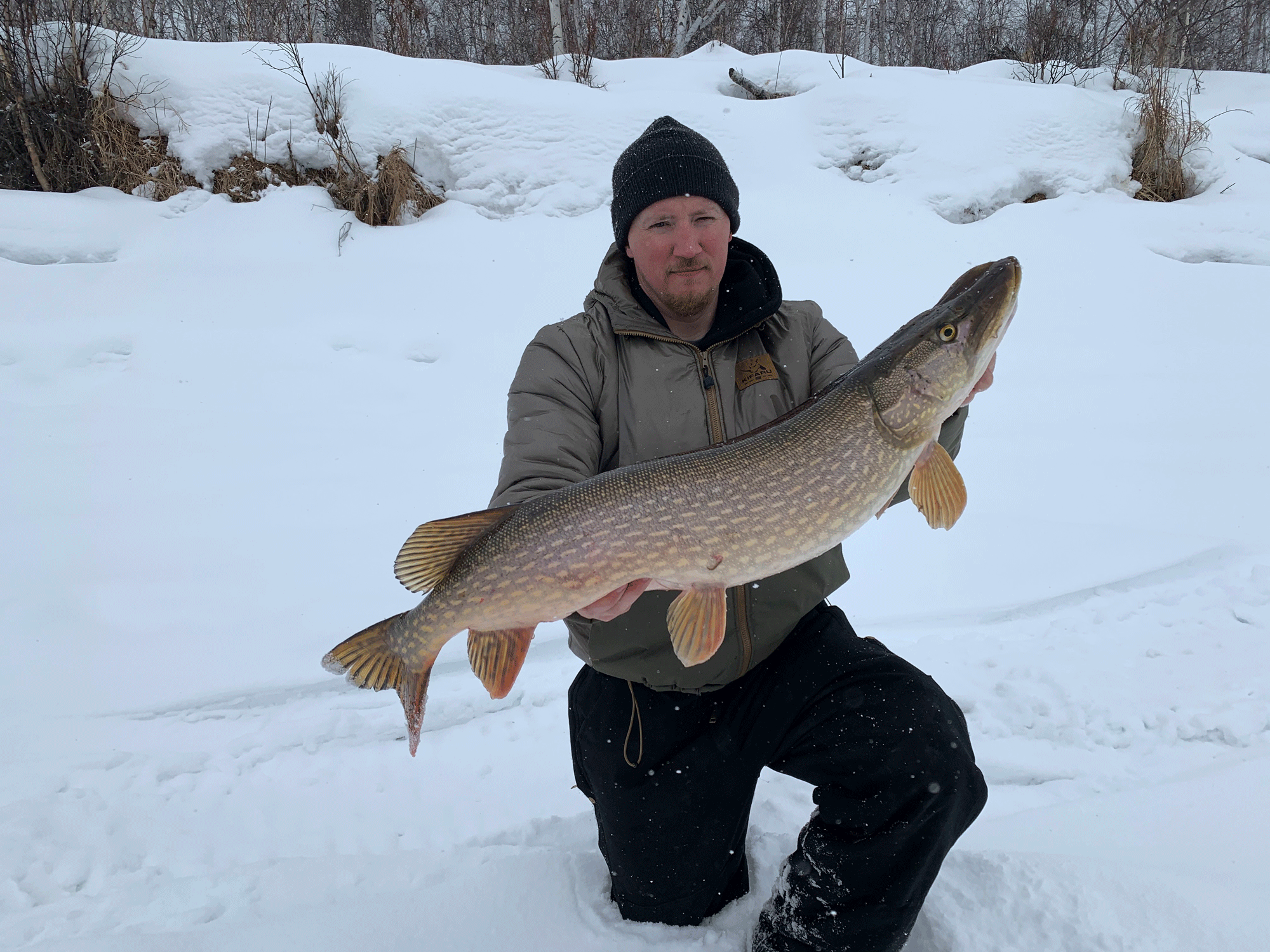
Matt Herkstroeder
In extreme cold, the Lost Park Parka is comfortable for moderate activity, and stays very warm with a good base and middle insulating layer. It’s great for cutting a biting wind or chill any time of the year, but you’ll quickly find yourself sweaty from lots of physical exertion. A big benefit of the synthetic insulation is that it dries very quickly, but your body heat will drive moisture out of it if you happen to get wet. It’s like wearing a sleeping bag.
Best Down Packable: KUIU Superdown Burner Parka
Key Features
- Shell: 30D Stunner stretch nylon with Dermizaz waterproof membrane
- Insulation: Quixdown water-resistant down
- Waterproof seams
- Baffled internal insulation layer separate from outer shell
- Full-coverage hood
- Insulated storm flap
- YKK Aquaseal zippers
- Bottom cinch cord
- Weight: 1 pound, 12 ounces (Men’s XL)
- Price: $800
Pros
- Extremely warm and packable
- Waterproof membrane and shell excellent at shedding snow and moisture
- Simple, effective design
- Great hood
Cons
- Expensive
The Kuiu Burner Parka is one of the warmest coats for the weight that you’ll find. It’s too hot for any strenuous activity in any temperature. The coat includes a breathable waterproof membrane to keep moisture out, and though the loft of the down makes the coat feel bulky, it packs down nicely. To save weight, the jacket doesn’t have an excessive number of pockets, but it has good adjustable cuffs, a tall collar and insulated storm flap, and probably the best non-fur-ruff hood in this test. The hood wraps around my head nicely and the hood opening sits out in front, which helps tame the wind. It’s a coat that can be stowed in a stuff sack when not in use, but be quickly ready to handle extremely cold temperatures.
Goose down coats are some of the warmest for the weight, and the use of water-repellent down helps make this coat more practical for a wide variety of conditions. If down gets wet and clumps, it quickly loses its insulating properties. In extreme cold, the moisture isn’t usually as much of a problem, just be careful not to get too sweaty. The coat is great in the wind, and the separate shell helps minimize heat leakage through the baffle seams. I took this coat on a December whitetail hunt in Kansas that involved all-day sits in freezing or below-freezing temps and stayed toasty warm. Just don’t expect this coat to be ultra quiet. Especially in sub-zero temperatures, the outer shell is pretty loud and crinkly. The Burner Parka is expensive, but it’s damned nice and can serve a variety of purposes.
Best for Layering: Stone Glacier Cirque and M7 Jackets
Key Features
- Shell: Hydrashield softshell fabric, fleece interior (M7)
- Insulation: Primaloft (Cirque)
- Waterproof seams (M7)
- Articulated hoods
- Pockets placed to allow use with pack belt
- Form-fitting
- YKK zippers
- Weight: 2 pounds, 13 ounces (Men’s XL, combined)
- Price: $279 (Cirque), $369 (M7)
Pros
- Ideal for high physical activity
- Suitable for riding or other activities
- Durable shell sheds snow and moisture
- Either layer can be used independently
Cons
- Expensive
- Not ideal for static activities in the coldest temperatures
If you’re planning on physically demanding activities in extreme cold, layering is of the utmost importance. Hats, masks, and gloves are still critical for keeping your extremities warm when hiking, snowshoeing, etc, but you’ll quickly sweat yourself out if you keep a heavy jacket on. If your primary activity is active, or might vary, you might find a system like the Stone Glacier Cirque synthetic coat and M7 fleece-lined rain shell to be the ideal balance. The Cirque is a simple, form-fitting puffy insulated coat with a nice hood and pockets, and pit zip vents for high activity. The M7 is a waterproof softshell jacket that’s lined with fleece and similarly has an adjustable, articulated hood. Chest pockets are ideally located for wearing a backpack belt strap.

Tyler Freel
This system won’t keep you comfortably warm in subzero temperatures if you’re just sitting around, but it’s ideal for lots of movement—you might even have to shed the outer layer at times. Riding at temperatures of 10 to 20 degrees below zero, I felt cold spots on my chest and shoulders, but they weren’t intolerable. Keep in mind, I also had no base layer and only a minimal light insulating layer, something I normally wouldn’t do in those temperatures. Using the Cirque jacket with synthetic insulation as an active layer allows much of your body’s moisture to be expelled—especially with the outer layer removed, but when using the M7 jacket on top, you have an excellent wind-breaking and moisture-blocking barrier. This is an expensive combo, but it’s very versatile for the active user and can be utilized in other seasons too.
Most Durable Down: Columbia Landroamer Down Parka
Key Features
- Shell: Waterproof/breathable polyester
- Insulation: Down
- Waterproof seams
- Removable hood
- Four flap-closure chest pockets, two hand pockets, zippered chest pocket
- Long cut with bottom-opening zipper
- Omni-Heat internal lining
- Weight: 3 pounds, 11 ounces (Men’s XL)
- Price: $300
Pros
- Full-length parka cut that has good mobility
- Durable waterproof outer shell
- Reflective Omni-Heat inner lining warms quickly and doesn’t bind on inner layers
- Fleece-lined hand warmer pockets
Cons
- Only interior pocket is outside insulation layer, phone gets cold
- No inner sleeve cuffs
If you’re looking for a durable down parka, the Landroamer from Columbia is right up your alley. It’s sheathed in a durable polyester fabric that’s waterproof, breathable, and makes an excellent wind stopper. It does great at shedding snow and slush, while allowing your body heat to bake out some of your own moisture. The down isn’t advertised as hydrophobic, so that waterproof shell is important for keeping it dry and effective. The outer shell is much more durable than a standard puffy or down jacket, and can withstand some abrasion. However, it doesn’t become excessively crinkly or stiff in the bitter cold.
The interior of the parka is lined with Columbia’s Omni-Heat liner, a gold colored, space blanket looking, reflective fabric. I’m not sure how much of a difference it makes, but I do like that the lining is slick and doesn’t bind on your sleeves or other parts of your base layers when putting the parka on. I do wish that it had inner snow cuffs on the sleeves, but if you keep the cuffs secure, they work well.
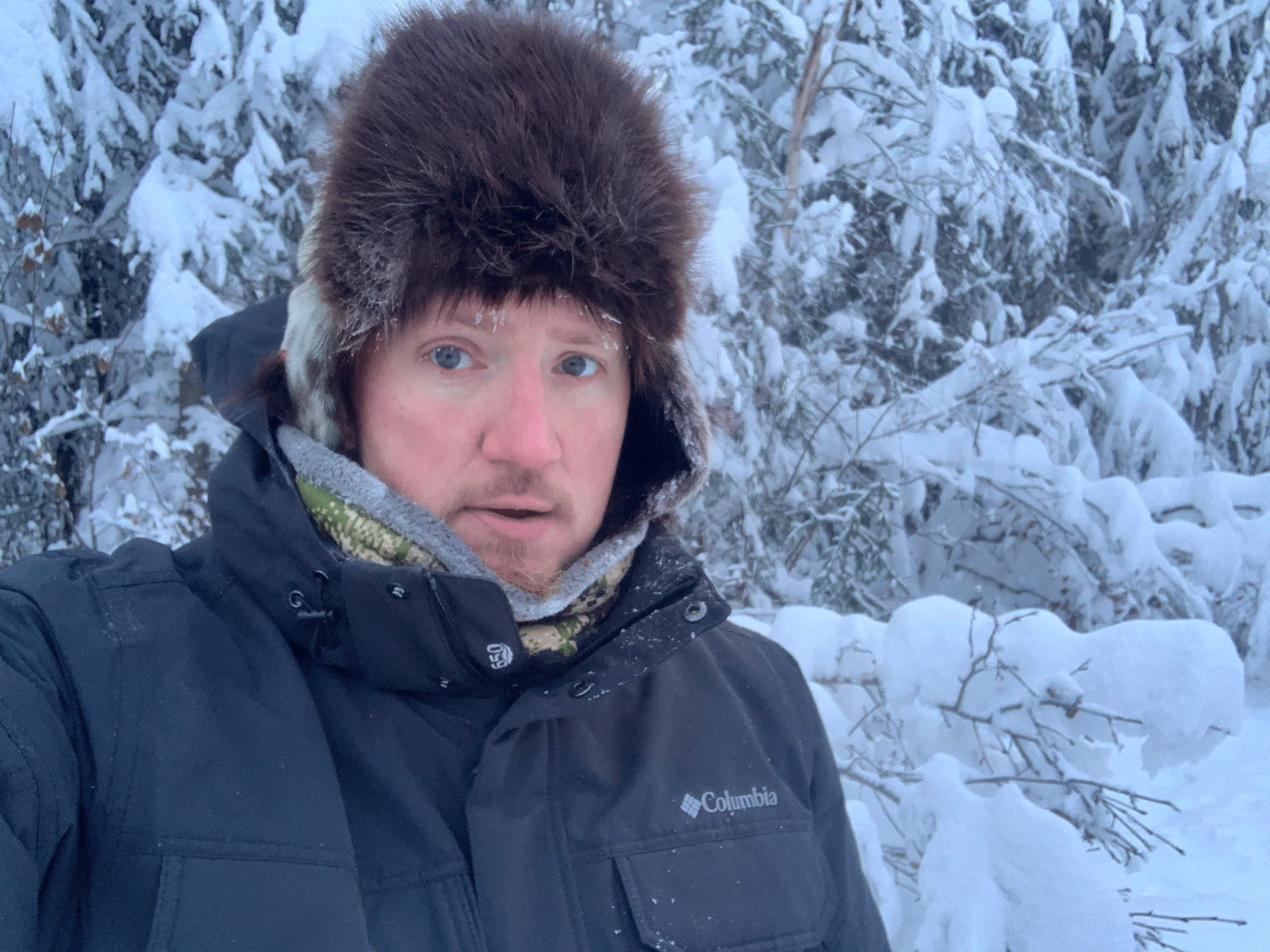
Tyler Freel
The chest has seven pockets total. It has four large flap-covered pockets, two on each side. The bottom flap pockets have additional zippered pockets. Between the two sets of pockets are fleece-lined hand warming pockets that come in very handy. I would like to see a couple of large gear pockets inside the jacket. The only interior pocket is a small zippered chest pocket that’s great for holding your phone, except that the pocket itself sits outside the insulating layer and gets cold.
The Landroamer is a very warm coat and was only slightly cooler than the Beyond Parka when riding full tilt at 25 below zero. Had I been wearing a normal middle insulating layer, I wouldn’t have felt it at all. The long cut puts the bottom of the garment below my butt, but running the bottom zipper up slightly allows great mobility. This is another coat you’ll have to shed for strenuous activity, but it will warm you right back up after you stop moving.
Active Puffy for Women: Columbia Snowqualmie Jacket
Key Features
- Shell: Recycled polyester
- Recycled polyester Thermarator insulation
- Classic puffy jacket baffle pattern
- Removable hood
- 2 fleece-lined hand pockets
- Interior hammock pockets
- Short cut with bottom draw cord
- Weight: 2 pounds, 2 ounces (Women’s S)
- Price: $200
Pros
- Light and warm
- Simple design
- Great for active use
- Synthetic insulation withstands moisture better than down
Cons
- Baffle seams and hood can leak heat
For daily use and active cold weather activities, my wife really liked the Snowqualmie jacket from Columia. It’s a simple throwback design that uses recycled polyester for both the shell and insulation. I had the up-sized men’s version too and think it’s an ideal jacked for daily use and active cold weather applications. The coat is very warm, but if you have to shed it while moving, it packs down well and can be put right back on. It also features more durable material on the shoulders and arms, great for anyone who’s hiking or busting through brushy areas. The rest of the jacket shell is thinner. It’s not one you want to stand by a bonfire in.
This jacket has simple elastic cuffs and a drawcord cinch at the bottom to keep out drafts. The cut is pretty high, so it’s best used with bibs rather than pants. The high cut and flexible design allow lots of movement and freedom of motion. The hood is snap-attached, so it’s quickly removable, but doesn’t provide quite the sealed protection that some other jackets do. In windy conditions, some of the heat will seep out through the baffle seams too.
Best for Work and Chores for Men: Carhartt Yukon Extremes Loose Fit Insulated Active Jacket
Key Features
- Shell: 500D Cordura nylon
- Insulation: 3M Thinsulate
- DWR water-repellent coating
- Wind-blocking shell
- Fixed hood
- 2 fleece-lined hand pockets
- Woven elastic cuffs and bottom skirt
- Corduroy-lined collar flaps
- Weight: 3 pounds, 4 ounces (Men’s XL)
- Price: $180
Pros
- Lightweight
- Shorter cut and mobile fit for active use and movement
- Surprisingly warm for the thickness/bulk
- Water/moisture repellent
Cons
- Cordura shell is very stiff and noisy in the cold before break-in
- Not ideal for extended time in extreme cold
Carhartt coats have been a staple for working in extreme cold for a long time, and you probably won’t see another brand so prominent in the workforce. Traditionally, a heavy insulated Carhartt Duck jacket with a well-worn cotton Duck fabric shell is the go-to for anyone working hard out in the elements. Hell, mine is still hanging on the coat rack. However, some of their newer coats are lighter and just as durable and warm. The Yukon Extremes jacket is one of the best winter jackets for extreme cold weather, especially when it comes to actively working in those temperatures. The biggest drawback of the old Duck canvas-like shells is that they absorb moisture, not repel it. Carhartt’s move to Cordura for this jacket makes it lighter, while staying surprisingly warm. It has a DWR coating to help it repel moisture and uses 3M Thinsulate insulation.
This jacket is similar to other Carhartt jackets in design. It has fleece-lined hand pockets, and a zippered inner chest pocket for your phone that keeps it warm inside the insulating layer. The permanently attached hood covers the head and blocks the wind well, and the corduroy lining on the collar flaps is soft on the face in the cold. The jacket has a loose fit and works well with an inner insulating layer. I spent many days working outside in jackets like this with a warm hoodie underneath. This jacket is great for any active work outside in the cold and holds up well to abuse. It’s not ideal for extended or static activities in extreme cold, but you won’t overheat if your task requires you to be active. Still, the jacket is surprisingly warm for its thickness. Even without a good insulating layer beneath, a 50 below windchill (at 20 below zero ambient temperature) wasn’t unreasonably cold while riding.
When the coat is new, the outer shell is absurdly stiff and loud in the cold, but like the older style Duck woven shells, they eventually soften up with use. It’s a great working coat for a good price.
Best for Work and Chores for Women: Carhartt Montana Relaxed Fit Jacket
Key Features
- Shell: Silicone-coated nylon
- Insulation: Polyester insulation, partial sherpa lining
- DWR water-repellent coating
- Wind-blocking shell
- Fixed hood, sherpa-lined
- Two fleece-lined hand pockets, two snap pockets, zippered chest pocket
- Elastic cuff
- Bottom drawcord
- Weight: 2 pounds, 14 ounces (Women’s S)
- Price: $150
Pros
- Great mobility and warmth
- Chest pocket opens from outside but keeps phone under insulation
- Berber shoulder and hood lining is very comfortable
- Durable, water-resistant shell
Cons
- Short cut not ideal for non-active tasks
- No storm zipper flap
While testing coats for men, my wife Faith helped me test several coats for extreme cold for women too. She found that the Carhartt Montana Jacket was great for active use and chores. It’s got a flexible nylon shell that’s treated with a DWR coating to repel moisture. It’s a simple design that uses baffled polyester insulation, but includes sherpa fleece lining on the upper back, shoulders, and hood for extra comfort. The front of the coat has snap-flap pockets with fleece-lined hand warming pockets beneath them. The zippered chest pocket — ideal for phone storage — can be accessed while the coat is zipped up, but the pocket slips the phone snugly under the insulating layer so it won’t freeze while stored there. The jacket has simple elastic cuffs and a drawstring cinch on the bottom to seal out the wind.
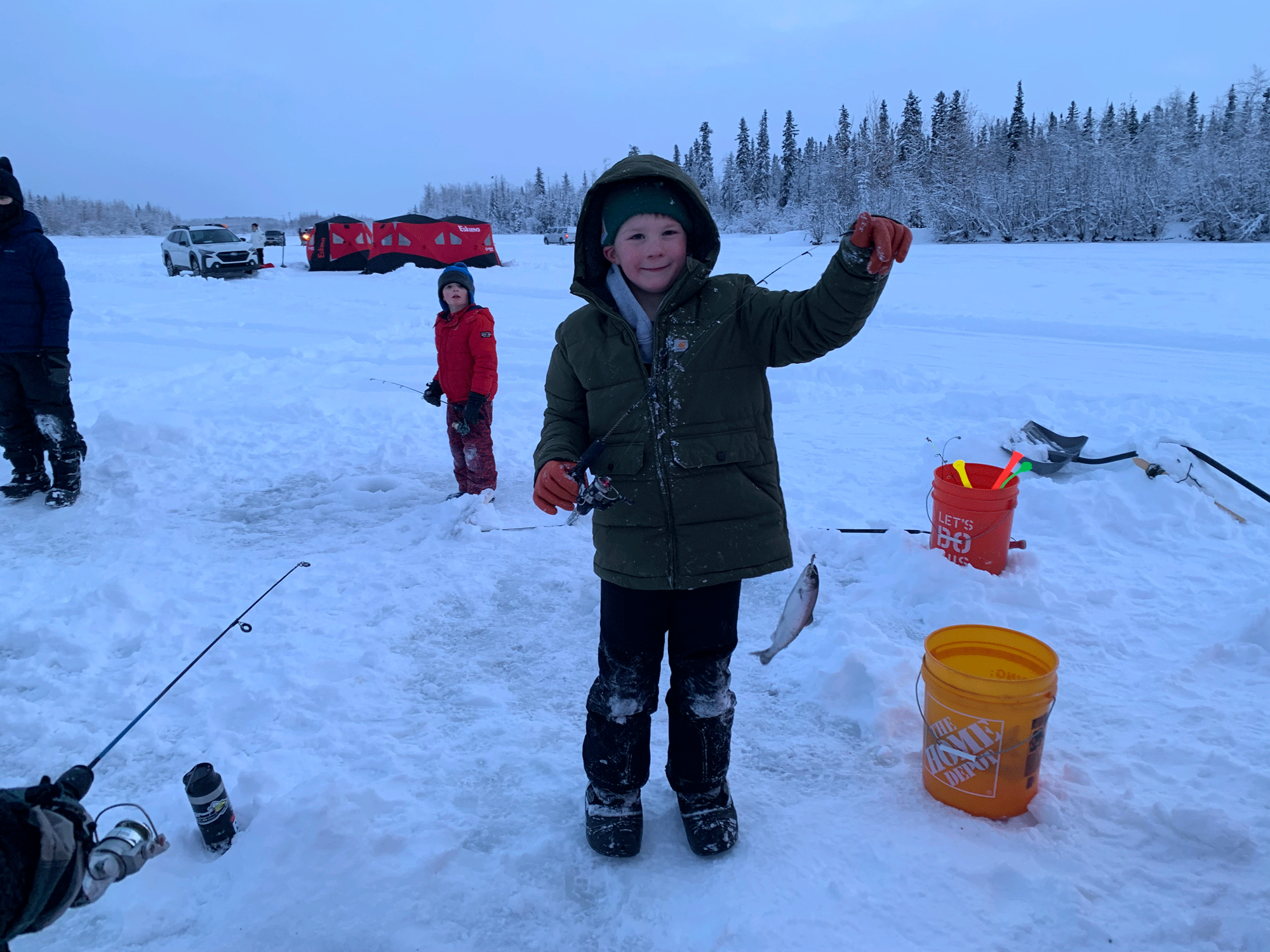
Tyler Freel
The cut of the jacket is a bit short to make it an expedition-type coat, but it’s great for activities where a longer, heavier coat would bog you down. This coat also fit my eight-year-old son reasonably well, and kept him warm ice fishing, playing, and rolling around in the snow like eight-year-olds do. Like other short-cut work-type coats, this one works very well with an insulating layer like a fleece jacket or sweatshirt when it’s below zero degrees.
How to Choose a Winter Jacket for Extreme Cold
Choosing the best winter jacket for extreme cold isn’t complex, but it requires you to consider three things:
- What temperature range do you consider extreme cold?
- What is the activity or application you’ll use the jacket for?
- What are your personal needs? Do you get cold easily?
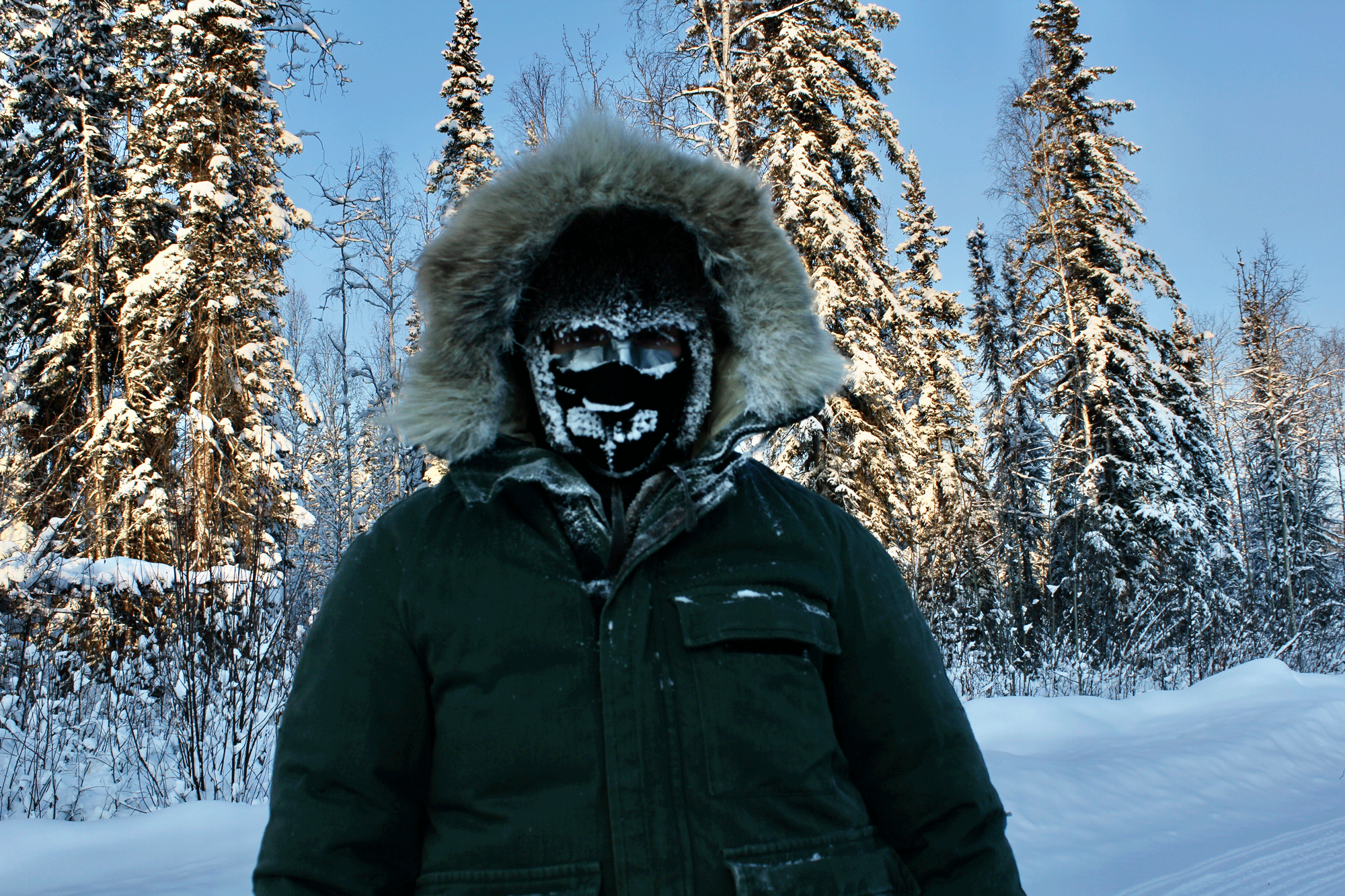
Tyler Freel
Someone who is out hiking, fat-tire cycling, or snowshoeing in subzero temperatures will need an entirely different jacket than an ice fisherman, recreational rider, or rancher. If you’re looking for active wear, think lighter coats that can work in a layering system. For riding, ice fishing, or more static activities, a larger coat that offers better coverage and weather protection is more ideal. If you’re working in the cold, look for coats that offer good mobility but have durable outer shells that won’t rip or tear easily. In any cold weather activity, the most vulnerable areas are your wrists and hands, and your face and neck. Most coats will work just fine on your body and arms, but it can help to consider those areas and how they’ll work with the gloves and face masks you want to use.
FAQs
Many brands have warm jackets, but in this test, Beyond Clothing and RefrigiWear had the warmest jackets.
Both synthetic and down jacket insulation are equally warm, but down is usually warmer for the same weight.
Some winter jackets are waterproof, but many are not. A waterproof or water-repellent outer shell will help keep your insulating layer dry.
A winter jacket without a hood is like a fingerless glove. Yes, get a jacket with a hood. Many of them are removable.
Most winter coats are machine washable, but each has its own manufacturer recommendations.
Final Thoughts on the Best Jackets for Extreme Cold
Bitter cold temperatures might dampen your desire to get outside, but they don’t slow down those who are properly dressed. A coat is one of the most basic cold-weather clothing items, and no matter your activity, you can find one to fit your needs. Pick a jacket, coat, or parka that works well for your activity level, and is tough enough to withstand it. Use a good layering system, gloves, neck gaiters, hats, and masks, and with the right coat, you’ll always be safe and warm, even at 40 below.
- Best Overall Men’s: Beyond Clothing Allta Polar L8 Parka
- Best Overall Women’s: The North Face Women’s Arctic Parka
- Best Value Men’s: RefrigiWear Extreme Hooded Jacket
- Best Value Women’s: RefrigiWear Polar Force Parka
- Best for Ice Fishing: Striker Apex Jacket
- Best for the Tree Stand: Cabela’s Instinct Standhunter Parka
- Best Synthetic Packable: Kifaru Lost Park Parka
- Best Down Packable: KUIU Superdown Burner Parka
- Best for Layering: Stone Glacier Cirque and M7 Jackets
- Most Durable Down: Columbia Landroamer Down Parka
- Active Puffy for Women: Columbia Snowqualmie Jacket
- Best for Work and Chores for Men: Carhartt Yukon Extremes Loose Fit Insulated Active Jacket
- Best for Work and Chores for Women: Carhartt Montana Relaxed Fit Jacket
